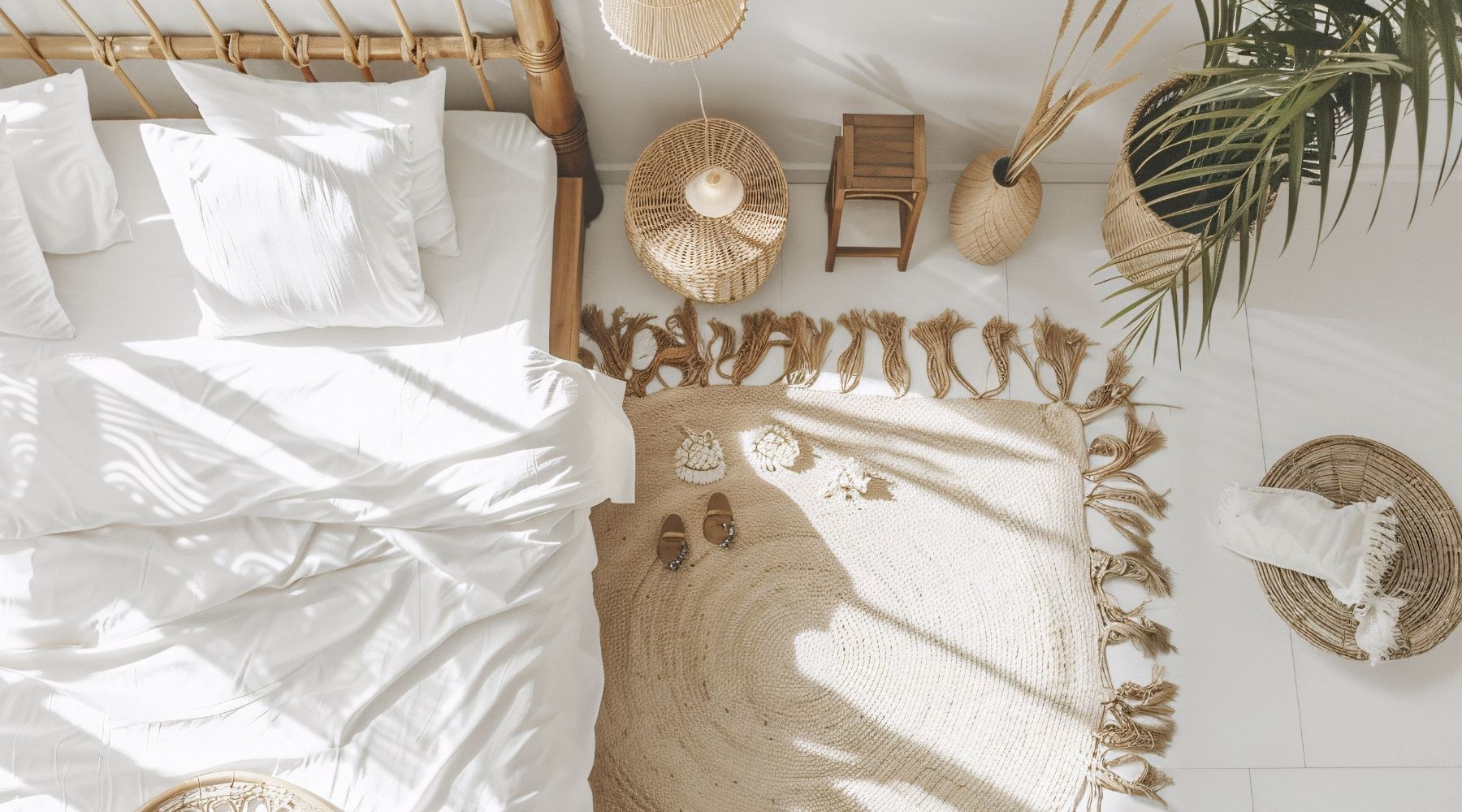Introduction
Sensitive skin can make bedtime a challenge. From redness and itching to flare-ups of eczema or acne, the wrong bedding can amplify irritation. What many don’t realise is that fabric choice, breathability, and even laundry habits play a huge role in how your skin responds overnight.
To get clarity on what really works, we’ve gathered dermatologist insights on bedding materials, allergens, and sleep hygiene - plus how sustainable choices can help you wake up feeling comfortable and refreshed.
Why Bedding Matters for Sensitive Skin
Your skin spends around 7–9 hours in direct contact with bedding every night. Unlike clothing, which is changed daily, sheets and pillowcases often go a week or longer without washing. That means oils, sweat, dead skin cells, and environmental allergens build up quickly.
Dermatologists emphasise three key bedding concerns for sensitive skin:
-
Friction: Rough or synthetic fabrics can cause micro-tears, worsen dryness, or aggravate eczema patches.
-
Heat and Moisture: Overheating at night encourages sweating, which may trigger flare-ups or acne.
-
Allergens and Irritants: Dust mites, harsh detergents, and chemically treated fabrics are common culprits.
The good news? Switching to gentle, breathable, and hypoallergenic fabrics can make a noticeable difference.
Dermatologist-Backed Bedding Materials
Not all bedding fabrics are created equal. Here’s what skin experts recommend and what to avoid.
1. Organic Cotton
Soft, breathable, and free from synthetic dyes, organic cotton is a safe choice for sensitive skin. It allows airflow, helping to regulate temperature while reducing moisture build-up.
2. Bamboo & Eucalyptus Tencel
Tencel fabrics, like our Bamboo Pillow (Eucalyptus & Bamboo), are increasingly recommended by dermatologists. They are naturally hypoallergenic, antibacterial, and softer than cotton, meaning less friction against delicate skin.
Clinical studies show that bamboo and eucalyptus fibres wick away moisture up to 50% faster than cotton, keeping skin dry and reducing irritation from sweat.
3. Silk
Silk is famous for reducing friction, which makes it ideal for preventing overnight creasing, redness, or hair breakage.
For a cruelty-free alternative, our Cool & Comfy Silk Pillowcase Pair (Eucalyptus) offers the same luxuriously smooth finish, perfect for eczema-prone or sensitive skin.
4. Avoid: Polyester & Synthetic Blends
Synthetic fabrics trap heat and moisture, encouraging bacteria growth. Dermatologists advise avoiding polyester sheets, especially for acne-prone or eczema-prone skin.
Bedding Habits That Support Skin Health
The fabric matters but so does how you care for your bedding. Dermatologists recommend:
-
Washing bedding weekly in fragrance-free, gentle detergent.
-
Using a protective pillow protector, to reduce buildup of oils and bacteria.
-
Replacing pillows every 2 years to avoid allergen accumulation.
Sleep Hygiene Tips for Sensitive Skin
Bedding is just one part of the equation. To keep skin calm overnight, dermatologists suggest:
-
Stick to fragrance-free detergents: Perfumed laundry products often contain irritants.
-
Shower before bed: Removing sweat, makeup, and pollution reduces bacteria transfer to bedding.
-
Rotate pillowcases every 2–3 days: This prevents oil and dirt buildup, especially if you have acne-prone skin.
-
Maintain a cool sleep environment: Lower bedroom temperatures reduce sweating and flare-ups.
Final Thoughts
Sensitive skin doesn’t just need the right creams, it needs the right environment. By choosing hypoallergenic, breathable, and soft bedding materials, you can drastically reduce irritation and wake up feeling refreshed.
Take a look at our bamboo and eucalyptus silk collections, designed to soothe sensitive skin naturally, so you can rest easy knowing your sleep is doing more than just recharging your mind.








Share:
Sleep Sustainably with rPET: The Eco-Friendly Comfort of BottleBounce Recycled Polyester Blankets
Choosing the Right Mattress Topper for Better Sleep